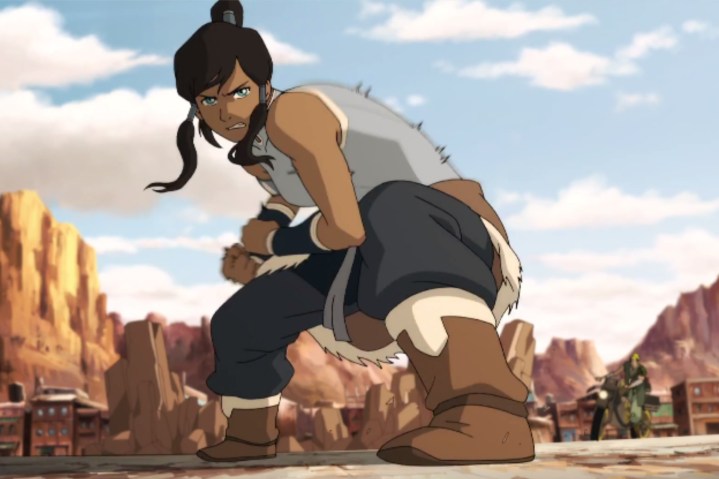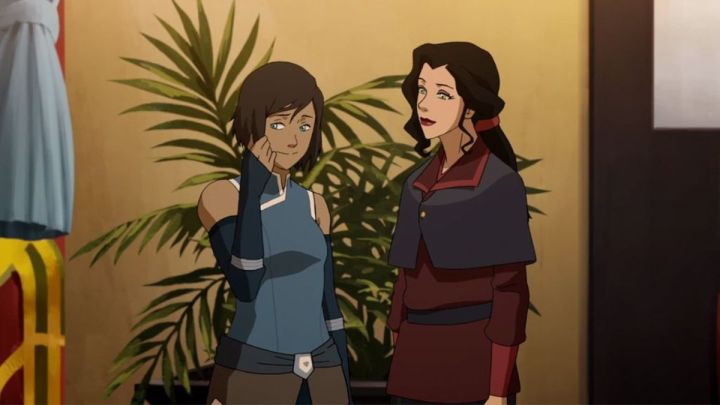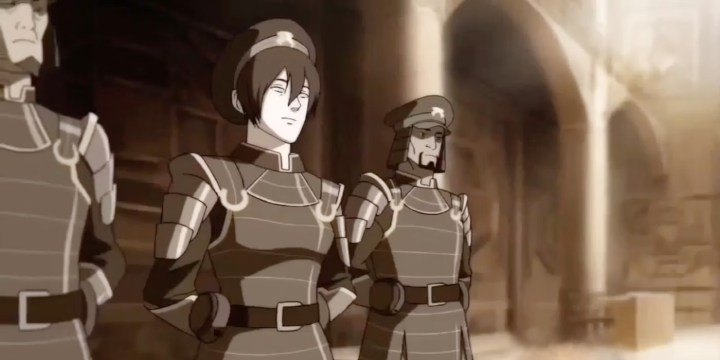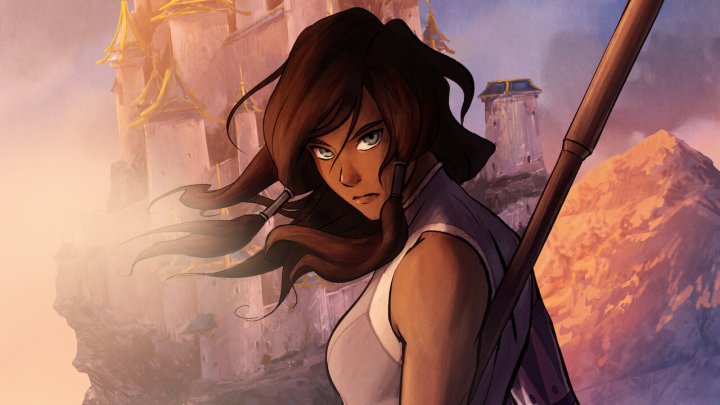Few things have endured in our culture the way Avatar: The Last Airbender has managed to. The series was a major hit when it aired on Nickelodeon from 2005 to 2008, and became even more of a phenomenon when it showed up on Netflix in the midst of the pandemic. Now, Netflix is making a live-action version of the original series, attempting to right the wrongs of the awful 2010 movie adaptation.
Amid this flurry of activity, though, the show’s sequel, The Legend of Korra, remains far more divisive. The series, which tells the story of the avatar immediately following Aang, is not nearly as universally beloved as its predecessor, and yet, it’s every bit that show’s equal. Over the course of four seasons, Korra faced a much more difficult and tumultuous development process, and the episodes that we got delivered and then some. Now, 10 years after it premiered, it’s worth considering what made the show work.
The show told a different story from its predecessor

There is a ton of inherent danger in producing a show like The Legend of Korra, which is a follow-up to one of the most successful kids’ shows ever made. In the end, though, the series proved to be worthy of its heritage, in part because it had no desire to tell the same story as its predecessor. Avatar told a single story about a young boy who didn’t want the responsibility of being the world’s savior.
Korra starts from the opposite place: Korra wants to be the avatar, and knows from the very moment we meet her that she’s special. She’s arrogant, brash, and confident that her skills will be enough to get her out of almost any situation. The villains she comes up against are, to a person, people who challenge her assumptions about the way the world should work.
Fire Lord Ozai, Aang’s primary antagonist, is a fanatical fascist set on world domination. By contrast, Amon, the first villain Korra runs up against, is basically a radical socialist and civil rights activist. He believes that, in Republic City, those who can’t bend are treated as second-class citizens. It’s a totally valid concern, although one about which he’s far too militant.
The same is true for all of the show’s villains: each one of them is after a fundamental rebalancing of the world, and Korra is ultimately able to learn something from each of them. In telling a totally new story with each season, Korra is able to more completely track the growth of its central character, and tell discrete stories that have more definitive conclusions.
It was hugely controversial

Although it made real efforts to distinguish itself from its predecessor, Korra was dogged by comparisons to it. By necessity, Korra had to use many of the characters that existed in Avatar and fill in their backstories. In what is perhaps the most notorious example, Toph, the rebellious earthbender who pushed against authority in her youth, becomes the chief of police in Republic City as an adult. She grows up to raise two daughters who are resentful toward her.
This change, sort of like what The Last Jedi does with Luke Skywalker, angered many of the people who thought they had a firm understanding of who Toph was. Why would she become a cop? The Toph we knew would never do such a thing.

What makes The Legend of Korra, great, though, is that it’s all about what it means to change. Toph is very much still the same person at 90 that she was when she was 10, but she’s had to figure out what it means to be an adult that people rely on. She’s changed, but she hasn’t. Korra herself goes through an even more drastic evolution, which is part of what makes the show so thrilling.
Korra is a wonderful character
Aang and Korra are designed to be opposites. Aang is a natural with airbending, and Korra can bend everything but. Aang has an intuitive connection with the spiritual world, and Korra struggles to connect with them at all. Aang hates being the avatar, and Korra completely subsumes her identity into the role.
These intentional contrasts immediately distinguish Korra from Aang, but they also prove to be fruitful avenues for Korra as she changes and evolves. Her inability to see herself as anything other than the avatar means that, at the end of the show’s third season ,when she’s horribly weakened by a battle with Zaheer, she finds herself completely adrift.

Of the characters in Avatar, Korra is most like Zuko, a hot-head who thinks they understand the world, only to discover that the identity they clung on to so desperately was not one they really needed. It should come as no surprise, then, that Korra‘s sister episode to “Zuko Alone” is “Korra Alone.” The episode comes in the aftermath of her complete debilitation, as she explores the lingering effects of her trauma and realizes how lost she is if she can’t be the avatar.
Korra herself goes through incredible change over the course of her show in a way that Aang simply doesn’t. Aang has principles when the show starts that remain steadfast throughout, and while he learns how to become an avatar, the way he sees the world doesn’t change.
Korra, on the other hand, is always bumbling from one bad idea to another. She arrives at an understanding that balance, which is the avatar’s chief responsibility, also necessarily means holding ideas in tension with one another. She has to recognize that many of the world’s existing institutions are flawed without wanting to see them completely destroyed.
Above all else, Korra has to realize that she should trust her own thoughts and perspective, and realize that what she thinks is just as important as the people she fights. It’s a journey of self-realization, and a thrilling one at that. On top of all of that, the romantic conclusion of her story was a genuine watershed moment for LGBTQ+ characters on screen.
Watching The Legend of Korra through that lens, it begins to feel every bit as impactful as its predecessor, even if it doesn’t have the same cultural footprint. Here’s hoping one of those theatrically released Avatar movies is about her.
You can watch all four seasons of The Legend of Korra on Netflix.


